Mulberry Leaves: A Nutritious Delicacy for Shrimps
Shrimps are fascinating creatures that require a well-balanced diet to thrive in aquariums. While commercial shrimp foods are widely available, incorporating natural and nutrient-rich sources into their diet can have numerous benefits.
One such natural food that stands out is mulberry leaves. Not only are mulberry leaves easily accessible, but they also offer a plethora of health advantages for shrimps. In this article, we will explore the reasons why mulberry leaves are an excellent dietary addition for shrimps.
Reasons to Love Mulberry Leaves for Your Shrimps
Abundance of Nutrients
Mulberry leaves are packed with essential nutrients that contribute to the overall well-being of shrimps. They contain vitamins such as A, B1, B2, and C, along with minerals like calcium, potassium, and magnesium. These nutrients aid in enhancing the shrimps' immune system, promoting growth, and ensuring proper molting, which is vital for their development.
Digestibility
One of the key advantages of mulberry leaves is their high digestibility for shrimps. The leaves are rich in fiber, which aids in maintaining a healthy digestive system. The fibrous content facilitates easy digestion and prevents issues like constipation. By including mulberry leaves in their diet, shrimp enthusiasts can promote optimal digestion, leading to healthier and more active shrimps.
Natural Antioxidants
Mulberry leaves contain powerful antioxidants, such as flavonoids and phenolic compounds. These antioxidants play a crucial role in neutralizing harmful free radicals within the shrimp's body. By combating oxidative stress, mulberry leaves help to reduce the risk of various diseases and boost the overall health of shrimps. Incorporating this natural food source into their diet can have long-term benefits for their well-being.
Antibacterial and Antifungal Properties
Mulberry leaves possess natural antibacterial and antifungal properties, which can help shrimps combat infections. The presence of bioactive compounds in mulberry leaves acts as a defense mechanism against harmful microorganisms. Including mulberry leaves in the diet of shrimps promotes a healthier environment, minimizing the risk of bacterial and fungal infections within the aquarium.
Promotes Natural Behavior
In the wild, shrimps feed on a diverse range of food sources, including plant matter. By offering mulberry leaves, you provide shrimps with a natural and stimulating feeding experience. Shrimps enjoy grazing on the soft and tender mulberry leaves, mimicking their natural foraging behavior. This can contribute to their overall well-being and reduce stress levels, resulting in happier and more vibrant shrimps.
Cost-Effective and Easily Accessible
Mulberry leaves offer a cost-effective alternative to commercial shrimp foods. They are readily available, especially in regions where mulberry trees are abundant. Many shrimp keepers prefer mulberry leaves as a budget-friendly and sustainable option to supplement their shrimps' diet. With a little effort, you can collect fresh mulberry leaves or even purchase dried ones from reputable sources.
Incorporating mulberry leaves into the diet of shrimps is a wise decision for shrimp enthusiasts. The abundance of nutrients, digestibility, natural antioxidants, antibacterial properties, and promotion of natural behavior make mulberry leaves an excellent food source for shrimps. By offering this natural delicacy, you provide your shrimps with a well-rounded and nutritious diet, contributing to their overall health and vitality. So, why not embrace the benefits of mulberry leaves and give your shrimps a treat they'll truly enjoy?



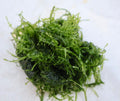






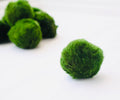
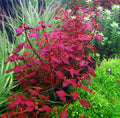
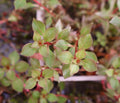
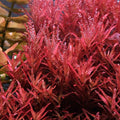
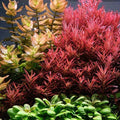
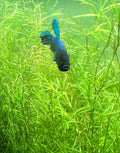

Should I boil fresh mulberry leaves and for how long before I place in the tank?